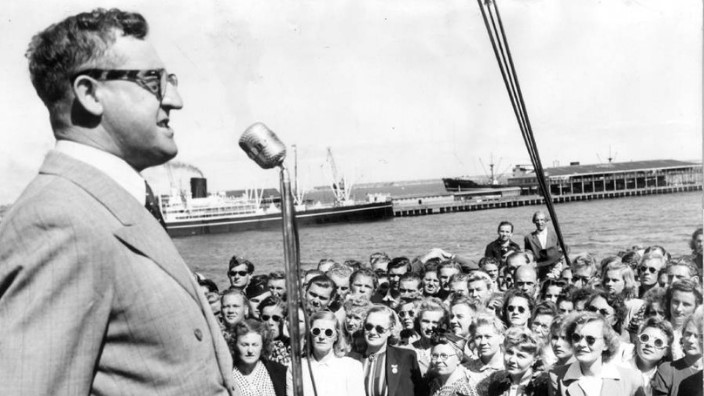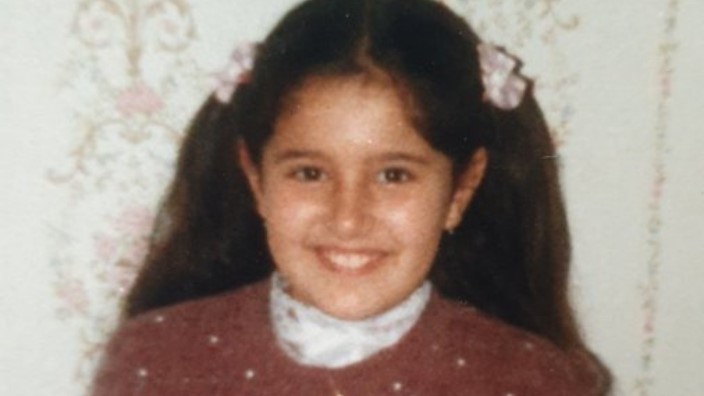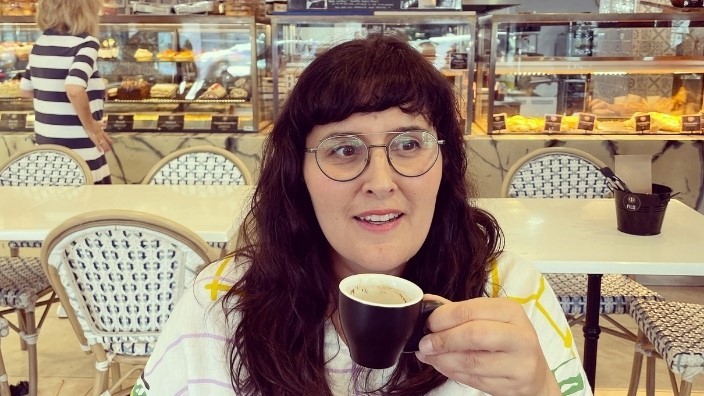By John Voutos.
“I think every Greek-Australian can relate to the experience of ‘othering’ in this country,” Effie tells me.
“I speak Greek with an Australian accent, which my family in Greece laughingly tell me whenever I visit.”
Dr. Effie Karageorgos is a historian and author who lectures a cohort of almost 900 at the University of Newcastle’s (UON) School of Humanities and Social Sciences. She tells me that she considers herself lucky to have had a working class, migrant upbringing, but that it definitely came with fallbacks.
“On one hand we are lucky, to feel belonging to two nations, but we are also in this in-between space. What does it mean to be Greek-Australian? I guess we’re all figuring it out as we go along,” she says.
We find ourselves in Thessaloniki, Greece, circa 1950s in search of the answer to this question. Effie’s pappou, Kosta, had just seen out a Civil War which claimed his brother. Kosta’s support for the communist forces ground his university study to a halt, stinted his job prospects, and led him on a trajectory to seek refuge and work as a factory worker, and later as a civil servant, in Australia.

“I always find it so incredible that Australia at the time was active in the fight against communism, yet was welcoming Greek migrants … many of whom were communist…,” Effie says.
He met Effie’s namesake, Elefteria, in Sydney. Elefteria gave birth to Effie’s mother, Vasiliki ‘Vicki’, soon afterwards. Effie’s father, Christos, met Vicki a few years after arriving in Australia in 1973 and together had Elefteria ‘Effie’ Karageorgos.
Effie moved with her family to Adelaide soon thereafter and grew up in a neighbourhood that was “not as Greek as others,” to put it kindly.
“I experienced some racism. The word ‘wog’ was often used… I have darker skin than some others in my family, so I would often get comments about my skin, hair, the food we ate…”

It was 1980s Australia. Mark Mitchell was performing as Con the Fruiterer. “You know, my daughters, Roula, Soula, Toula, Voula, Foula, and Agape? I teach them all to swim myself. That’s funny, because when they get down to the beach, they forget everything, you know?,” he could be seen joking on Network Ten’s comedy series The Comedy Company.
This prejudice was commonplace and it was the Federal Government’s policy of assimilation that was the catalyst of her namechange.
“…my parents thought that my life in Australia would be easier if my name was ‘Effie’,” she says.
She says “…no non-Greek had been able to say my name, or showed any interest in saying it correctly” up until adulthood.

“Let’s hope that now, in 2021, there will finally be some changes in how migrants are considered in this country,” she says.
Effie’s family provided the assurance she needed growing up in an isolated suburb.
It was the history of her lineage that inspired her to complete an Honour Degree, and PhD in History at Flinders University in Adelaide after acquiring Commerce and Arts degrees.
She began her academic career in Melbourne soon thereafter. She shares an experience working in a university in Melbourne.
“Some years ago I was coordinating a topic at a university in Melbourne and one of the tutors who was teaching in the topic came to me and started discussing a student who they didn’t think would be ‘smart’ because she’s a ‘wog’.

“I was horrified that this Anglo-Saxon person was saying this to me. I knew that these forms of racism existed within universities, but to be so open about it to me? How would this affect the way this person was marking the essays of or interacting in class with students who were ‘wogs’ or from any other cultural group that they saw as different?”
Effie’s PhD dissertation was later published as a book, Australian Soldiers in South Africa and Vietnam: Words from the Battlefield, in 2016.
“I would not exist if it were not for war or the military,” she says.
Dr. Karageorgos now works in Newcastle, where she co-convenes the UON’s Future of Madness Network, is helping organise the Australian and NZ Society for the History of Medicine conference, and has research projects on war trauma and gender-based violence in the works.
The bustling Greek scene in Melbourne’s Northcote and Thornbury areas is a stark contrast to the community in Newcastle, she says, but often visits Sydney, the city she says her family members were “quite literally” involved in building, for her “Greek fix.”


